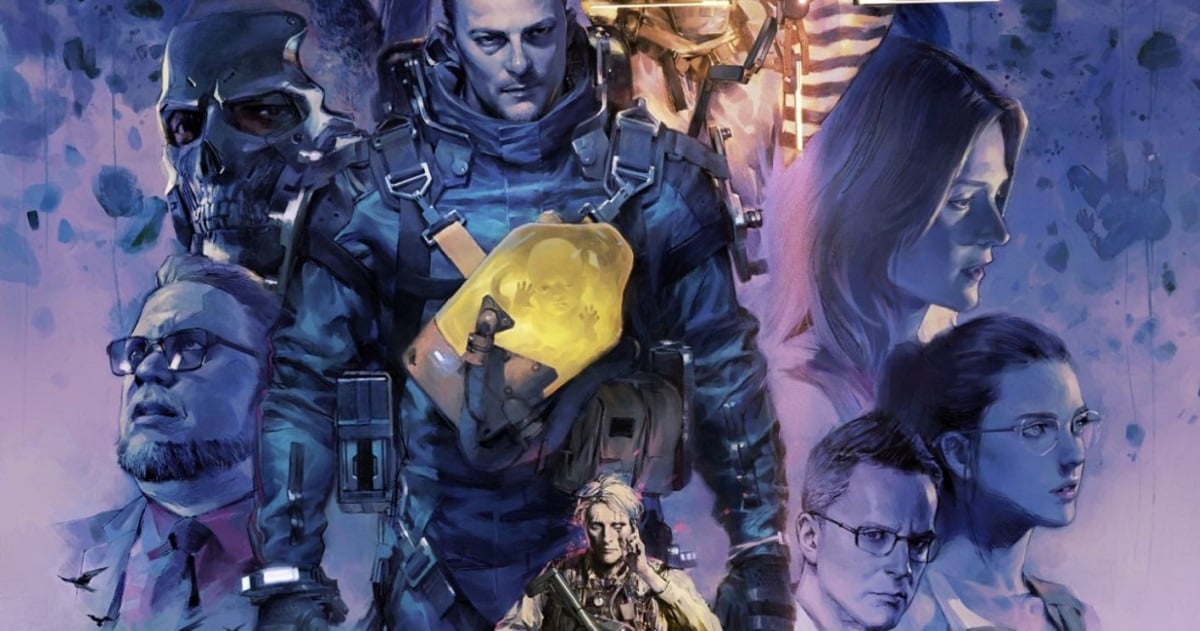
Banned Book Week is being celebrated in bookstores and libraries across the country this week as a reminder of what it means for a free society to read freely. But “celebrated” is a tricky word for author Amy Timberlake and illustrator Adam Rex, whose 2003 picture book The Dirty Cowboy (Farrar, Straus, and Giroux) has been banned from school library shelves in Pennsylvania.
With the goal of rallying the book community—librarians, teachers, book publishers, booksellers, and readers themselves—Banned Books Week highlights the freedoms we have to exchange ideas and express ourselves, and of the dangers of censorship in stifling those freedoms. Typically when we consider books that have been challenged or banned, we think of adult content, perhaps 50 Shades of Grey or The Kite Runner, both of which made the list of frequently challenged books for 2012. But many of the titles are kids’ books, including the No. 1 most challenged Captain Underpants series, cited for “offensive language, unsuited for age group.”
 Last spring, The Dirty Cowboy , a tale about a cowboy who takes his annual bath and asks his dog to watch over his clothes, only to find that his dog no longer recognizes him when he’s all cleaned up, was banned by a Pennsylvania school district. The parents of a student complained to the school board that the illustrations might lead to an interest in or acceptance of pornography. They demanded that the book be removed from the district’s elementary school libraries, and the school board voted unanimously to pull it. The same happened in a Texas school district as well.
Last spring, The Dirty Cowboy , a tale about a cowboy who takes his annual bath and asks his dog to watch over his clothes, only to find that his dog no longer recognizes him when he’s all cleaned up, was banned by a Pennsylvania school district. The parents of a student complained to the school board that the illustrations might lead to an interest in or acceptance of pornography. They demanded that the book be removed from the district’s elementary school libraries, and the school board voted unanimously to pull it. The same happened in a Texas school district as well.
Before its banning, The Dirty Cowboy was honored with a Golden Kite Award, International Reading Association 2004 Notable Book award, and a Parents Choice Gold Medal, among many others. It has been praised for its hilarious charm, which involves creative ways of maintaining the mud-caked cowboy’s modesty throughout his yearly scrubbing. I recall reading The Dirty Cowboy with all three of my children, who were bath time experts back then, as part of our bedtime routine, and they found the cowboy’s bathing routine uproarious.
To understand more about book banning, I reached out to Amy and Adam.
GeekMom: When you were creating The Dirty Cowboy, did you ever imagine it would cause such an outcry?
Adam Rex: I honestly didn’t, but only because it was my first book and I didn’t know any better. I thought it had a subject that would seize people’s attention, and some of those people would wince and say, “No thank you,” and some would laugh and say, “Oh my gosh, I have to get this for my friend and her kid.”
Banning wasn’t on my radar. Banning was something that had happened a lot in the past, or continued to happen to books like The Anarchist’s Cookbook or whatever.
And I like to tell people, because it’s true, that as I was starting work on The Dirty Cowboy my editor at FSG actually went out of his way to tell me that he thought I could get away with “one butt.” And I turned down that butt. I decided that the humor that I was going to add to the book would be all about always concealing the cowboy in ridiculous ways. Always.

Amy Timberlake: Every time Adam tells the story about the editor, it cracks me up. I’ve got a story about that editor too. That guy was a gifted editor (and wonderful person) who had absolutely no fear of nudity in kid’s books. (I must stress here that there is NO nudity in The Dirty Cowboy because absolutely nothing shows, which is a great deal of the fun in the book.) But I remember that when I asked this editor if it was even possible to publish a story about a bath–since in order to bathe you MUST take off clothes–he said, “Why not? It’s funny!”
So as this story shows, I did have a sense that my story might cause some trouble. But this was something I discovered only after I had written the story and was sending it out to publishers. For instance, there was an agent who told me that publishers didn’t want to do this kind of story because the response to Sendak’s In the Night Kitchen had scared them. Also, there was a magazine who liked the story enough to send a personal note, but said they just couldn’t publish it because it was too risky.
But when I began writing this story out, I had no idea that it would upset people. The Dirty Cowboy came from a family story that my great-grandfather reported in the newspaper. As I grew up, this story was told to my brother and me before bed. It was a funny story! We couldn’t get enough of it. Both my grandfather and my dad told this story to us regularly, because we asked them to tell it. It was easily my family’s favorite story. So when I was thinking about what story I wanted to write for children, of course I was going to tell The Dirty Cowboy. And that was the extent of my motivation for writing this story. That’s it! Happily, people like this story as much as my family does. The Dirty Cowboy has remained in print for quite a long time. It sells very steadily. I hear from people that say they’re giving it as a gift again. I love that! I’m really proud of this particular book.
GM: While there is humor around the notion that some readers might be offended by a stinky, dirt-caked cowboy taking a bath, having your book banned is sobering. What were your thoughts initially when you learned the book was pulled from shelves? And what do you think now that the dust has settled and a year has passed?
Adam: I’m glad you ask this, because when your book is banned everyone comes forward to pat you on the back and say, “Well done.” I think there’s this idea that a banned book must be pushing boundaries—and of course being banned puts you in some great company.
I bristle a little at this, because being genuinely offensive is actually the easiest thing in the world. I suppose it’s a lot harder to hit some sort of “sweet spot” where you create a book that is publishable by a respected house but nonetheless gets banned. But whatever—getting banned, or even challenged, always makes me feel pretty miserable.

It means that someone is saying that the things I create are bad for children. That I’m bad for children. And of course I got into this business because I love kid’s books and kids and I want to make great things for them. I didn’t do it for the money. I would have made a lot more money over the last ten years illustrating annual reports for pharmaceutical companies.
Amy: Getting banned is not a great feeling–I’ll say that– and I’m the writer (which is very different from being the illustrator). Yeah, the whole “well done” thing . . . Sigh. I guess I’m just rolling with that one now, because if I nod my head, and say, “Yup, banned like Toni Morrison and Kurt Vonnegut,” the conversation stops sooner. I kind of want to forget the whole thing. It’s not pleasant. I mean, I love The Dirty Cowboy. When my father was alive, he signed those books too, writing things like, “My papa told me this story. I told my daughter this story. Now she’s retelling it for you.” This is a beautiful book. It’s a fun story. It’s something to enjoy with your family. That’s what I want.
GM: The Dirty Cowboy is in tremendous company. It joins the ranks of some amazing titles that have been banned or challenged: The Great Gatsby, The Catcher in the Rye, The Grapes of Wrath, To Kill a Mockingbird, and The Color Purple. Is that a point of pride for you? Or does it still rankle?
Adam: I guess I jumped the gun on this question. But for every To Kill a Mockingbird there’s probably a hundred banned books that I would consider garbage, so I still think the whole notion of getting banned is value-neutral.
Amy: Agreed. Also, book-banning isn’t a huge news item. What you’re seeing there is the tip of an iceberg. Those titles are a way to give attention to the issue. My sense is that there are thousands and thousands of titles banned, and we’re not hearing about them. Books that end up in a dumpster don’t make any list at all.
GM: Books have been banned and challenged for years, and they will continue to be. In 2012, there were 464 challenges as reported by the Office for Intellectual Freedom, and that’s up by more than 130 from 2011. While there can be some high-falutin language around the ideals of freedom and expression, The Dirty Cowboy is a simple example of how those freedoms can be chipped away in small but significant ways. Do you feel like you’re more sensitive to the idea that “free people read freely”?
Adam: Absolutely. But kids aren’t free people. Every kid should consider herself lucky if she has a benevolent warden who is frequently telling her what to do and when to do it. There’s a sweet spot to aim for here, too, but it’s the freest kids that we feel sorry for. The ones who have no guiding hand.
So I’ve always told the handful of parents who have emailed me with objections to my books (here, for example) that I applaud them for taking an interest in what their kid is reading and for asking that kid to refrain from reading something the parent finds inappropriate. They only cross the line when they have the arrogance to believe they should be the arbiter of what everybody else’s kids are reading, too.
Amy: Again, I agree with what Adam has said. I’ll just add that it’s a privilege to live in a place with free libraries. I love my library, and I feel downright patriotic about libraries in general. When I go into a library here, I know I’m in the United States. A library is the United States at it’s best. Hey, we’re sharing! But yeah, that means that one person can’t decide what we all get to check out and read from the library, which is why libraries have processes in place for buying and retiring books. Anyway, you wouldn’t like what I like, and I wouldn’t like what you like. For instance, today the mold count in Chicago is through the roof, which means I’m grumpy and not, shall we say, a generous reader. So three cheers for libraries who have processes in place!

GM: Who are the most effective advocates for books in communities where they are banned? If you could rally the troops behind books, who would they be?
Adam: Well, the librarians are always on the front line, of course. And they are often entirely alone. If I could advocate for anything, it would be for all book challenges and bannings to be made public. I’m hurt by a public book banning, but I’m not afraid of it. I’m afraid of all the books that get quietly removed from shelves nationwide because of singular objections.
I don’t think the publicity will cow many book challengers, either—many of them will be all too happy to have their communities know what heroes they are. But if they’re going to make decisions for the public, then the public ought to know those decisions have been made.
Amy: I wish all [of] the challenges would be made public! It’s the silent ones that are awful. In the month after The Dirty Cowboy was first published, a woman emailed me to tell me that she “had to throw out” all the copies of The Dirty Cowboy that she ordered for her school because it wasn’t appropriate. At the time, no one knew about this except me and the people I told—the publisher and an organization that fought book-banning. That’s when I found out that this sort of thing happens all the time.
As for advocates, our librarians are our biggest advocates. I’d love to see more people involved in their local libraries. Also, you can always buy a banned book. The book’s sales figures are what keep a book in print.
 GM: The Dirty Cowboy was an early book for both of you. You’ve each gone on to write and illustrate many more titles, including this year’s memorable middle-grade novel One Came Home (Knopf) from Amy and the brand-new, gorgeous picture book Moonday (Disney-Hyperion) from Adam (who wears both the illustrator and author hat for a long list of titles). Does your experience with “The Dirty Cowboy” color your other work?
GM: The Dirty Cowboy was an early book for both of you. You’ve each gone on to write and illustrate many more titles, including this year’s memorable middle-grade novel One Came Home (Knopf) from Amy and the brand-new, gorgeous picture book Moonday (Disney-Hyperion) from Adam (who wears both the illustrator and author hat for a long list of titles). Does your experience with “The Dirty Cowboy” color your other work?
Adam: Not really. I think it’s only made me a little more vigilant for unintended meanings. Once certain people decided that The Dirty Cowboy was pornographic, they saw all sorts of things that weren’t there. They accused me of illustrating a zoomorphic rock violating a horse. Let me explain that: because there is a rock (known, Amy’s text tells us, as “The Praying Iguana”) that looks like a lizard, and because that rock has a horse in front of it, they saw a physical act that tells us a lot more about their imaginations than it does about Amy’s or mine. But I could have just turned the rock around and avoided the whole thing.
So I try to keep an eye out for this kind of unintended business. Nonetheless, sometimes something still slips by me. I don’t see it, and my wife doesn’t see it; neither does my agent, or my friends, or the half dozen people at the publisher who are responsible for ushering the book into print, or the publisher’s sales force, or those who review it professionally.
Then, months or even years later, someone sees something they think is dirty and subsequently wants to either condemn me or high-five me for putting it in a kid’s book. This person never realizes that they have essentially just introduced themselves at a 12-step meeting and admitted they have a problem. They always think the problem is mine.
Amy: Nope. With each book, I’m trying to tell a good story, to tell the truth, and to use the best language I can manage. None of that has changed.




